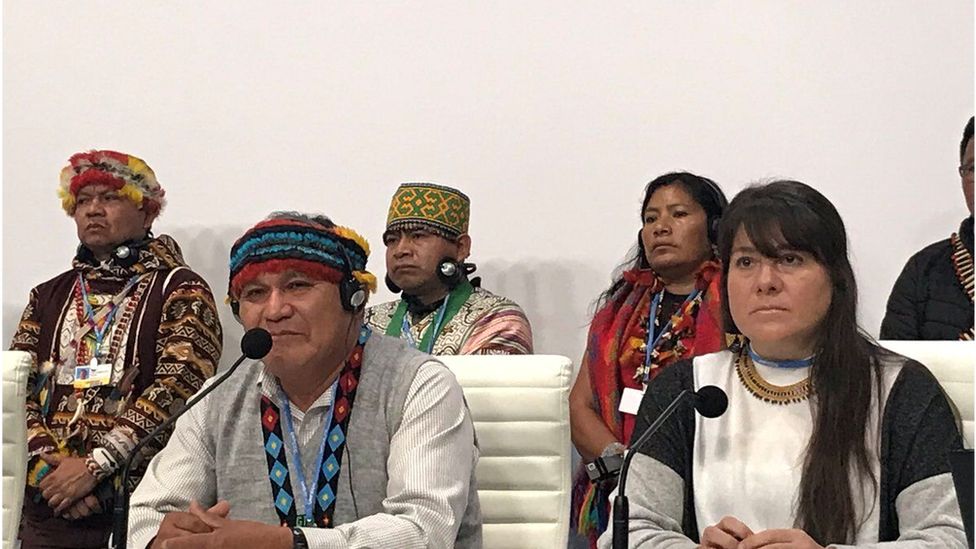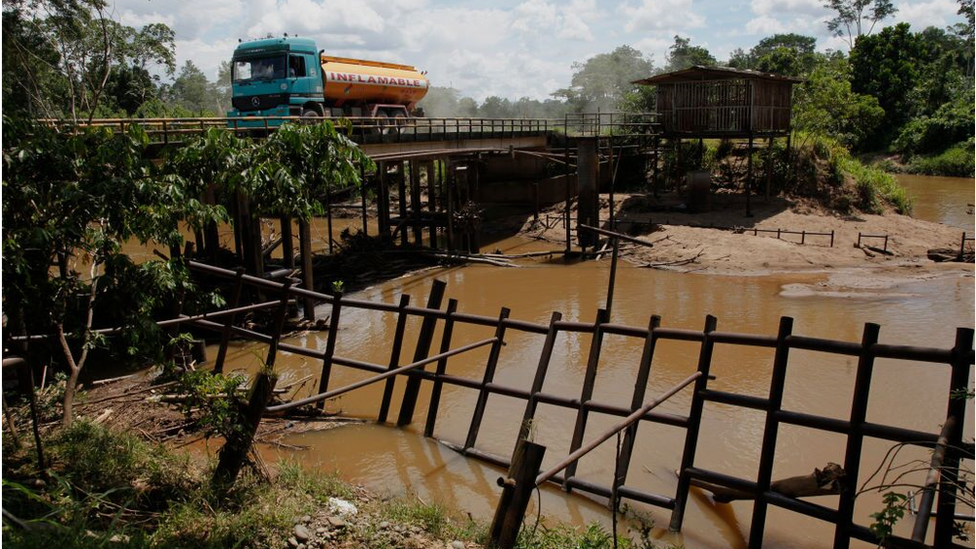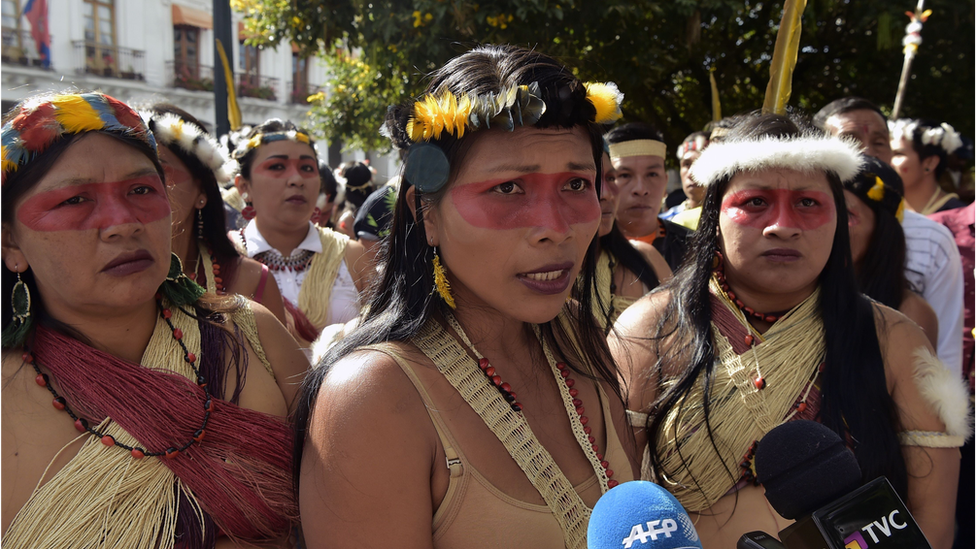Climate change: Amazon oil boom under fire at UN talks
- Published

Indigenous leaders at the COP asking for a moratorium on oil extraction in the Amazon
A report presented at COP25 says that plans are in place for a huge expansion of oil drilling in the upper Amazon.
The analysis says that Ecuador and Peru are set to sanction oil extraction across an area of forest the size of Italy.
Indigenous leaders from both countries have travelled to Madrid to urge a moratorium on using the oil.
They say using the five billion barrels under the forest would harm the region and the world.
The area in question is known as the sacred headwaters of the upper Amazon and spans some 30 million hectares (74 million acres) in Ecuador and Peru.

Oil extraction in the Amazon has been linked with serious environmental problems
The region is home to around 500,000 indigenous peoples from 20 nationalities, and is a hotspot of biodiversity.
But a report prepared by campaign group, Amazon Watch, says that Ecuador and Peru are actively planning to expand extraction and auction new oil blocks across the area.
Right now this is a pristine area, with few roads. The indigenous people have title to these lands and in the area several tribes are living in voluntary isolation. Campaigners fear that if the oil blocks are sold it will see new roads built, which will lead to illegal logging, deforestation and poor outcomes for the residents of the region.
Ecuador is due to leave the OPEC oil consortium in 2020, allowing it to boost its oil production. The country is also under pressure from China to supply oil because of financial debts.
"There's about $14bn that Ecuador owes China right now and that's a big part of the drive to expand production and look for new oil," said Kevin Koenig, from Amazon Watch who authored the report.
"In addition there are about $6bn in hidden debt in these oil for loan deals between PetroChina and Petroecuador which Ecuador is paying in barrels of oil."
It's estimated that around five billion barrels of oils are to be found in the upper Amazon region, which would equate to two billion metric tonnes of CO2.
Right now, around 50% of the current production from the western Amazon goes to California,
The report has been presented at the COP to highlight the hypocrisy of countries including China, says Kevin Koenig.

Indigenous protestors in Ecuador have fought against oil development for a long time
"All those countries are here making declarations about cutting emissions, Ecuador and Peru are making declarations about protecting the Amazon but what we are seeing is a whole different plan to expand extraction, there's a gap between what countries are committing too and what they are actually planning to do in terms of fossil fuel expansion."
Indigenous leaders here are pressing for a moratorium on drilling - they say the oil should stay in the ground.
"We have been protecting our forests. We have kept many oil companies away," said Sandra Tukup, an indigenous leader from Ecuador.
"We are asking for a model of development aligned with climate science that respects our rights and allows our forests to continue to flourish."
Others stress the importance of the Amazon region for the whole world. They believe it could help push global temperatures past 1.5C, a level beyond which scientists believe there could be dire consequences for the Earth.
"The world needs to understand that the Amazon goes beyond Brazil, and that us, the indigenous from Peru and Ecuador, can work hand in hand with governments and philanthropists in the creation of a new economic model for the Amazon Forest," said Lizardo Cauper, from Peru.
Reflecting the scale of violence that many indigenous people from the Amazon region live under, a delegation of more than 20 Brazilian leaders held a protest at the COP against the murder of two people on Saturday.
Follow Matt on Twitter., external